
Figuerolles: The Bohemian Heart of Montpellier
Figuerolles, nestled in the heart of Montpellier, is a vibrant and eclectic neighbourhood that perfectly encapsulates the bohemian spirit of this southern French city. Known for its artistic flair and multicultural essence, Figuerolles is a haven for those seeking an authentic and immersive experience. The streets are lined with colourful murals, quirky boutiques, and vintage shops, offering a feast for the eyes and a treasure trove for the curious. As you wander through Figuerolles, you'll discover a rich tapestry of cultures woven together, reflected in the diverse range of eateries and cafes. Whether you’re in the mood for traditional French pastries, Mediterranean delights, or exotic dishes from far-off lands, Figuerolles has something to tantalize every palate. The aroma of freshly baked bread mingles with the scent of spices, creating an inviting and heady mix that draws you in. The neighbourhood is also home to several local markets, where you can find fresh produce, handmade crafts, and a variety of unique items that make for perfect souvenirs. The lively atmosphere is infectious, with street musicians and performers adding to the area's charm. Don't miss the chance to visit the Parc de la Guirlande, a peaceful green space perfect for a relaxing stroll or a leisurely picnic, offering a respite from the bustling streets. Figuerolles is not just a place to see; it’s a place to experience. Whether you’re an art enthusiast, a food lover, or simply someone looking to soak in the local culture, Figuerolles promises a memorable journey through the heart of Montpellier.
Local tips in Figuerolles
- Take a leisurely walk to explore the street art and murals scattered throughout Figuerolles.
- Visit the local markets early in the morning for the freshest produce and unique handmade crafts.
- Try the local cafes and eateries for a diverse culinary experience, blending traditional French and international flavors.
- Spend some time in Parc de la Guirlande for a peaceful break amidst greenery.
- Check out the vintage shops and quirky boutiques for one-of-a-kind souvenirs.
Figuerolles: The Bohemian Heart of Montpellier
Figuerolles, nestled in the heart of Montpellier, is a vibrant and eclectic neighbourhood that perfectly encapsulates the bohemian spirit of this southern French city. Known for its artistic flair and multicultural essence, Figuerolles is a haven for those seeking an authentic and immersive experience. The streets are lined with colourful murals, quirky boutiques, and vintage shops, offering a feast for the eyes and a treasure trove for the curious. As you wander through Figuerolles, you'll discover a rich tapestry of cultures woven together, reflected in the diverse range of eateries and cafes. Whether you’re in the mood for traditional French pastries, Mediterranean delights, or exotic dishes from far-off lands, Figuerolles has something to tantalize every palate. The aroma of freshly baked bread mingles with the scent of spices, creating an inviting and heady mix that draws you in. The neighbourhood is also home to several local markets, where you can find fresh produce, handmade crafts, and a variety of unique items that make for perfect souvenirs. The lively atmosphere is infectious, with street musicians and performers adding to the area's charm. Don't miss the chance to visit the Parc de la Guirlande, a peaceful green space perfect for a relaxing stroll or a leisurely picnic, offering a respite from the bustling streets. Figuerolles is not just a place to see; it’s a place to experience. Whether you’re an art enthusiast, a food lover, or simply someone looking to soak in the local culture, Figuerolles promises a memorable journey through the heart of Montpellier.
Iconic landmarks you can’t miss
Place de la Comédie
Discover the vibrant atmosphere of Place de la Comédie, Montpellier's historic square brimming with culture, cuisine, and captivating architecture.
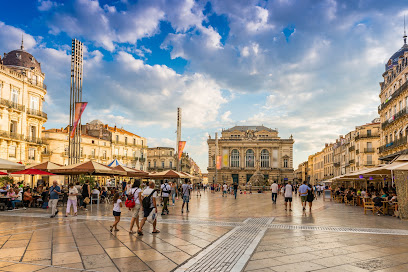
Jardin des plantes de Montpellier
Explore the enchanting Jardin des Plantes de Montpellier, a historic botanical garden brimming with diverse plant species and serene pathways in the heart of France.
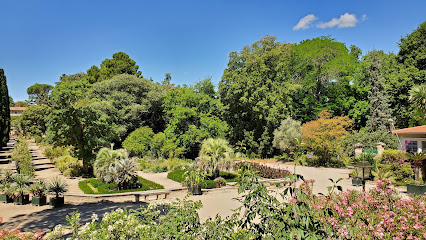
Arc de Triomphe
Discover the Arc de Triomphe in Montpellier - a stunning historical landmark showcasing French architectural beauty and rich cultural heritage.
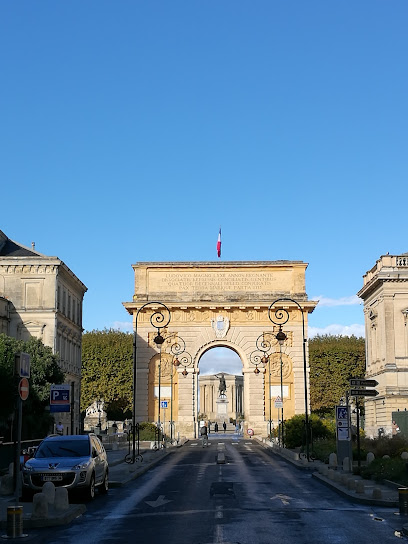
Promenade du Peyrou
Discover the enchanting Promenade du Peyrou in Montpellier, where history meets nature in a picturesque urban setting.
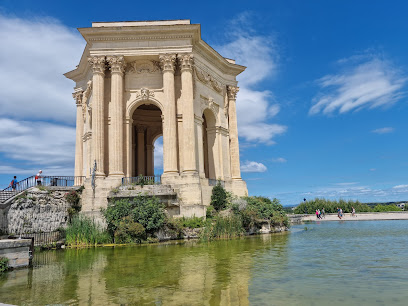
Montpellier Cathedral
Discover the breathtaking architecture and rich history of Montpellier Cathedral, a must-see landmark in the heart of the city.

Aqueduc Saint-Clément
Explore the Aqueduc Saint-Clément, a historical gem in Montpellier showcasing stunning architecture and the beauty of 18th-century engineering.
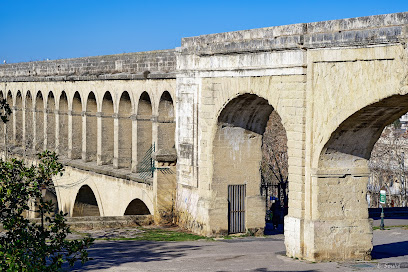
Pavillon Populaire
Explore the Pavillon Populaire in Montpellier, a cultural hub showcasing stunning photography and contemporary art in a beautiful setting.
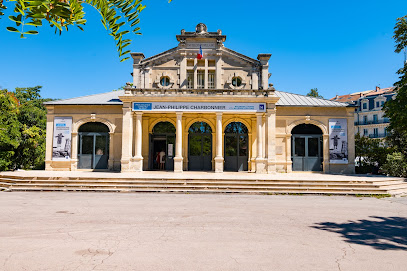
Château De Flaugergues
Discover the elegance of Château De Flaugergues, a historical landmark in Montpellier featuring exquisite architecture, beautiful gardens, and fine wines.

La Tour de la Babote
Discover the rich history and stunning views of La Tour de la Babote, a must-visit historical landmark in Montpellier.
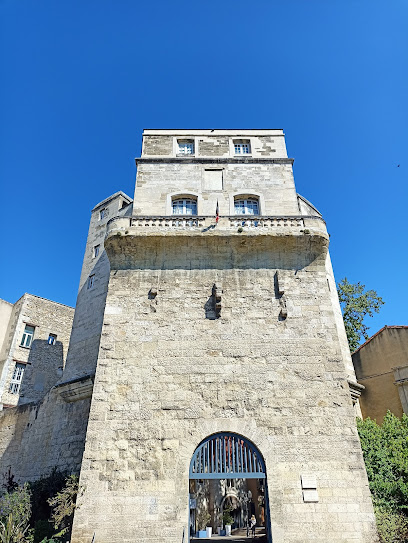
Place de La Canourgue
Explore the serene beauty and cultural richness of Place de La Canourgue, Montpellier's enchanting urban park that captivates every visitor.
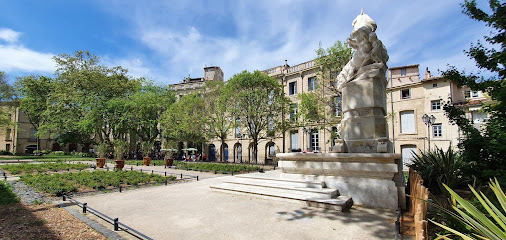
Parc de la Guirlande
Experience tranquility in the heart of Montpellier at Parc de la Guirlande, a picturesque park for relaxation, family fun, and natural beauty.
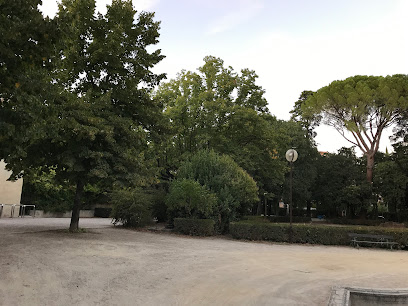
Fountain of the Three Graces
Discover the enchanting Fountain of the Three Graces in Montpellier, a stunning blend of art and history in the heart of the city.
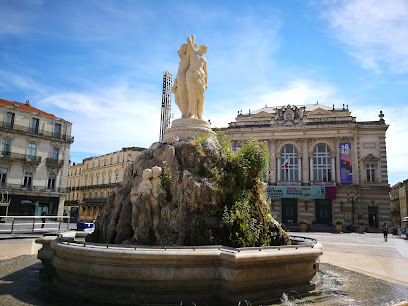
Pine tower square
Explore Pine Tower Square in Montpellier: a serene urban park perfect for relaxation, picnics, and experiencing local culture amidst nature's beauty.
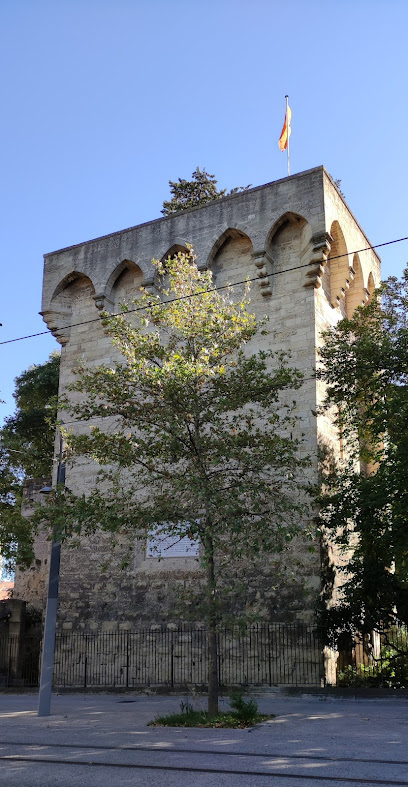
Square Maquis Bir Hakeim
Experience tranquility in Square Maquis Bir Hakeim, a lush city park in Montpellier perfect for relaxation, picnics, and enjoying nature's beauty.
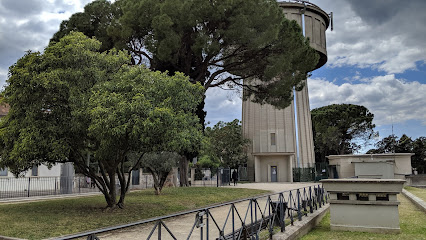
L'Escalier Arc en Ciel Belvédère
Explore the vibrant L'Escalier Arc en Ciel in Montpellier - a colorful staircase offering stunning views and a cultural experience.
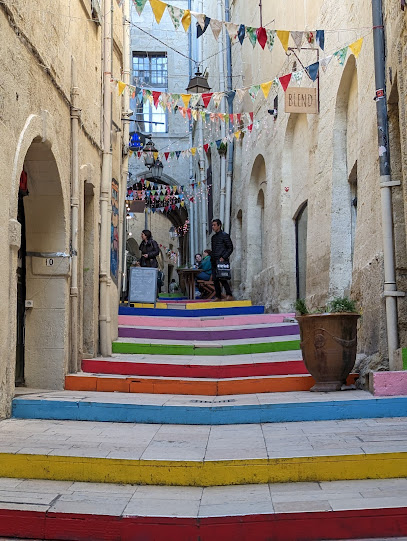
Unmissable attractions to see
Place de la Comédie
Explore the vibrant Place de la Comédie, Montpellier's iconic square, a hub of culture, history, and lively atmosphere perfect for tourists.
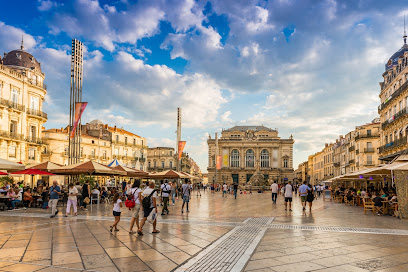
Montpellier Zoological Park
Explore the enchanting Montpellier Zoological Park, home to diverse wildlife and beautiful botanical gardens, perfect for families and nature enthusiasts.
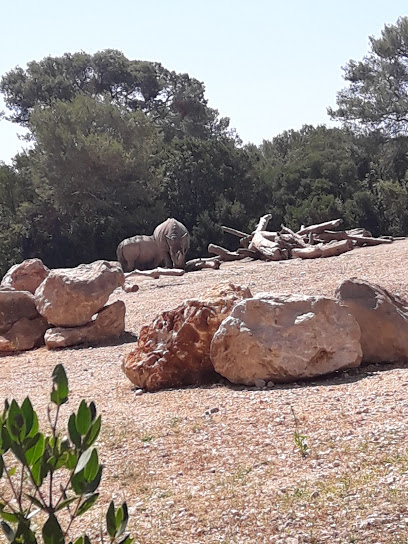
Planet Ocean World
Explore the vibrant aquatic life at Planet Ocean World, Montpellier's premier aquarium and animal park, perfect for family adventures.
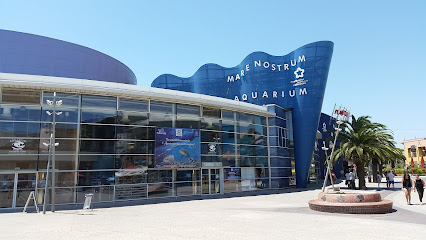
Jardin des plantes de Montpellier
Explore the stunning Jardin des Plantes de Montpellier, a historic botanical garden filled with diverse plant species and tranquil pathways.
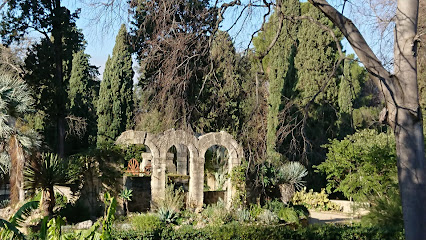
Arc de Triomphe
Discover the grandeur of the Arc de Triomphe, a historic landmark in Montpellier that captures the city's rich heritage and architectural beauty.
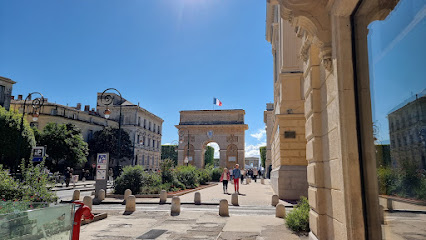
Promenade du Peyrou
Explore the enchanting Promenade du Peyrou, a historical promenade in Montpellier offering breathtaking views, lush gardens, and a serene atmosphere.
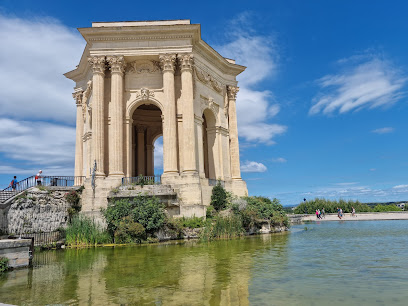
Musée Fabre
Discover the artistic gems of Musée Fabre, Montpellier's premier art museum, featuring masterpieces and contemporary works in a stunning setting.
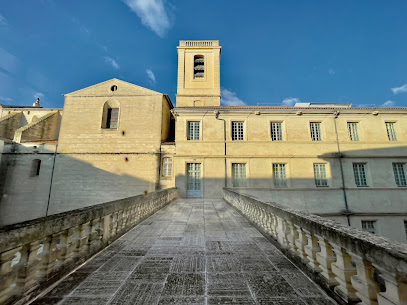
Aqueduc Saint-Clément
Explore the Aqueduc Saint-Clément in Montpellier, an architectural gem and historical landmark showcasing stunning 18th-century engineering amidst beautiful surroundings.
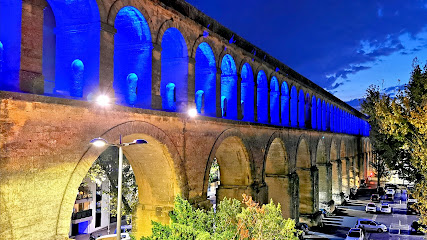
L'Escalier Arc en Ciel Belvédère
Discover the vibrant beauty of L'Escalier Arc en Ciel Belvédère in Montpellier, a stunning staircase that offers captivating views and a colorful atmosphere.
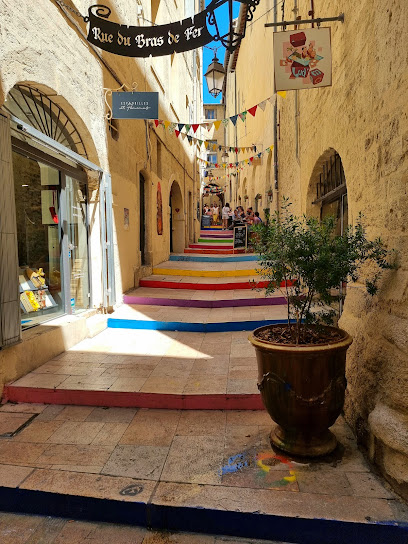
Place Zeus
Experience the vibrant essence of Montpellier at Place Zeus, a cultural hub filled with cafes, shops, and stunning architecture.
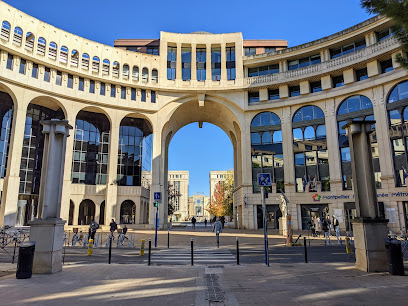
Les allégories de McCollum
Explore the artistic treasure of Les allégories de McCollum, a unique tourist attraction in Montpellier that celebrates creativity and culture.
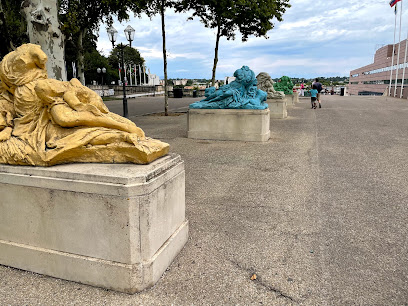
Essential places to dine
Lalibela
Experience authentic Ethiopian cuisine at Lalibela in Montpellier - where tradition meets flavor in every dish.
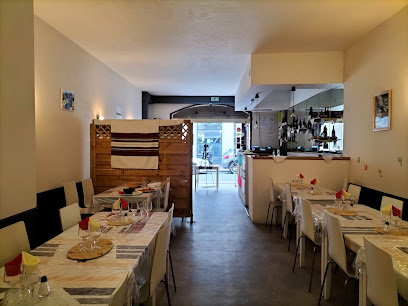
La Table Du Maroc
Discover authentic Moroccan cuisine at La Table Du Maroc in Montpellier; indulge in grilled meats, flavorful couscous, and traditional North African delights.
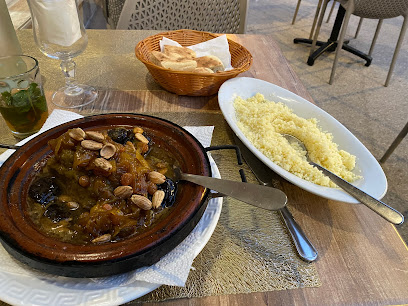
L'Equateur
Experience authentic Ethiopian flavors at L'Equateur in Montpellier – where every dish tells a story.
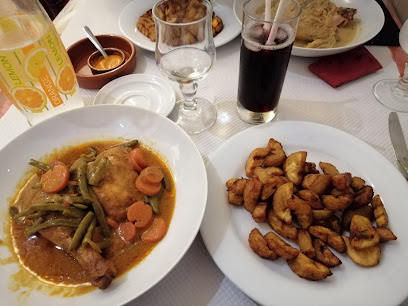
Pizzeria le Repalatin
Discover the authentic taste of Italy at Pizzeria le Repalatin in Montpellier – where every slice tells a story.
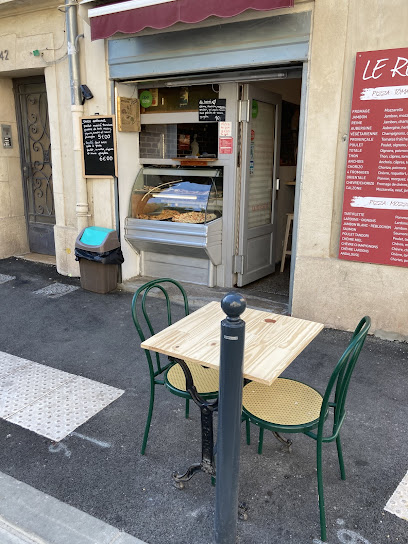
Pampa y Luna
Experience authentic Latin American cuisine at Pampa y Luna in Montpellier—a vibrant fusion of flavors in an inviting atmosphere.
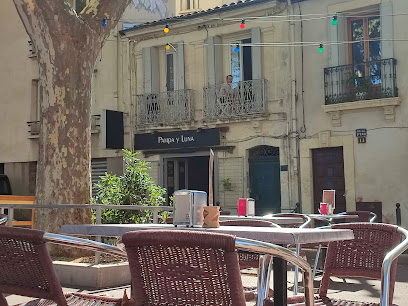
Very miam food Montpellier
Experience late-night culinary delights at Very Miam Food Montpellier—where every dish tells a story.
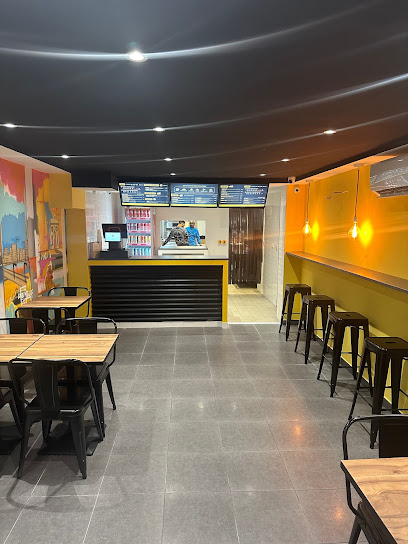
La chuaya
Experience the vibrant flavors of Montpellier at La Chuaya, where traditional cuisine meets modern flair.
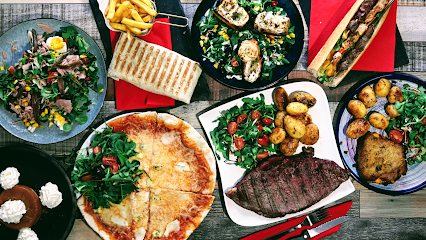
Restaurant Imilchil
Experience authentic Moroccan flavors at Restaurant Imilchil in Montpellier – where every dish tells a story.
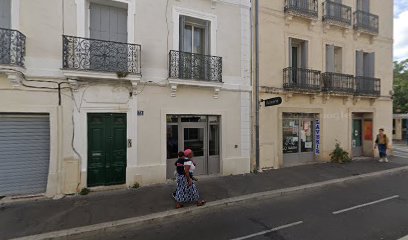
Restaurant
Discover exquisite dining in Montpellier's vibrant streets, blending local flavors with culinary creativity for an unforgettable experience.
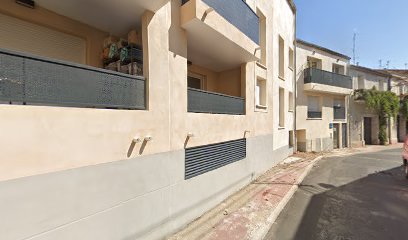
Trip to Catalunya
Discover the flavors of Catalunya at this charming Montpellier restaurant - where tradition meets taste.
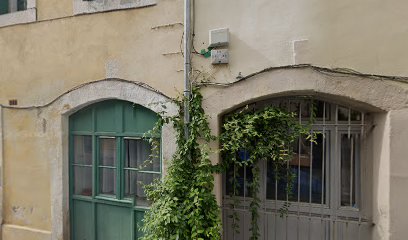
Markets, malls and hidden boutiques
La Gaminerie
Unearth vintage treasures and unique finds at La Gaminerie, Montpellier's charming second-hand store, perfect for eco-conscious tourists.
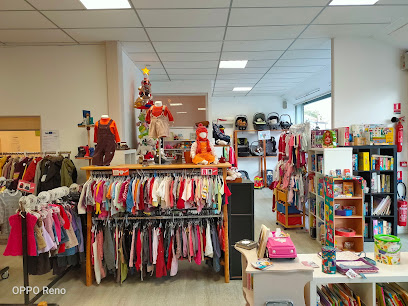
BRAD BOUTIQUE
Explore sustainable fashion at Brad Boutique – your go-to vintage clothing store in Montpellier for unique and stylish pre-loved garments.
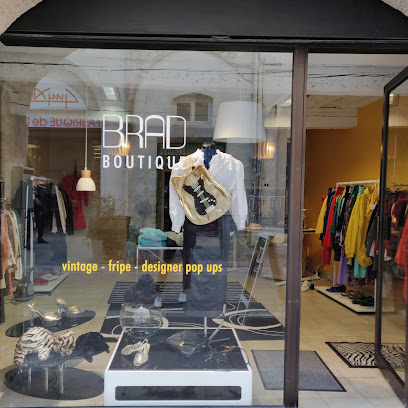
La Vintage Gallery
Explore La Vintage Gallery in Montpellier for a unique blend of vintage fashion and local art, a true haven for style enthusiasts and art lovers.
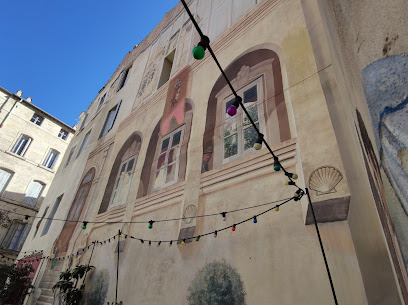
Mam'zelle Fatou
Discover the vibrant world of African culture at Mam'zelle Fatou, Montpellier's unique boutique for textiles and handmade crafts.
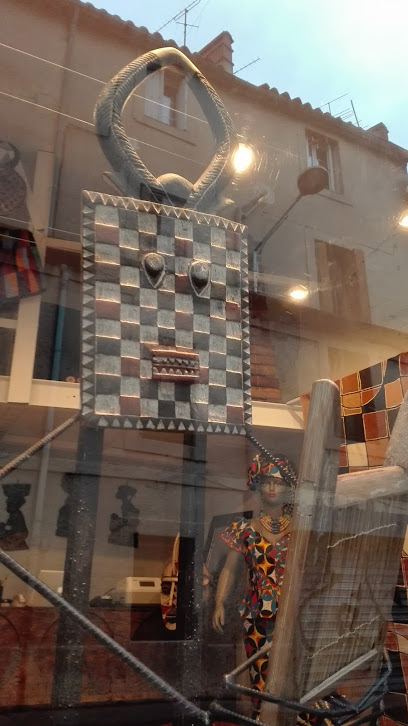
Boutique Swag Pret A Porter Femme
Discover unique women's fashion at Boutique Swag in Montpellier, where style meets elegance in a charming boutique setting.
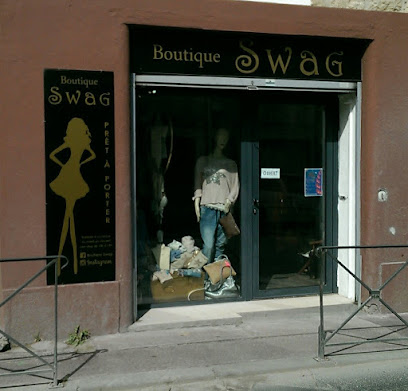
A La changerie
Explore A La Changerie in Montpellier for unique vintage clothing that embodies timeless elegance and sustainable fashion choices.
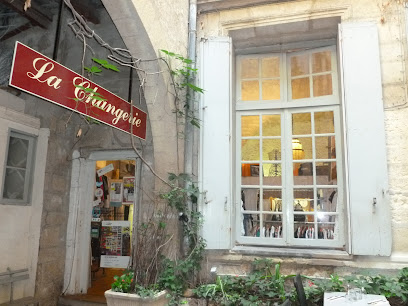
Bazar de figuerolles
Explore the eclectic offerings of Bazar de Figuerolles, a vibrant variety store in Montpellier, perfect for unique souvenirs and local products.
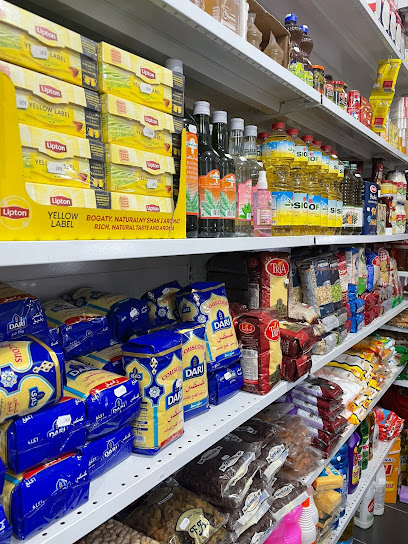
FG HOOKAN
Discover the unique offerings at FG HOOKAN, a charming store in Montpellier where local culture and vibrant shopping meet.
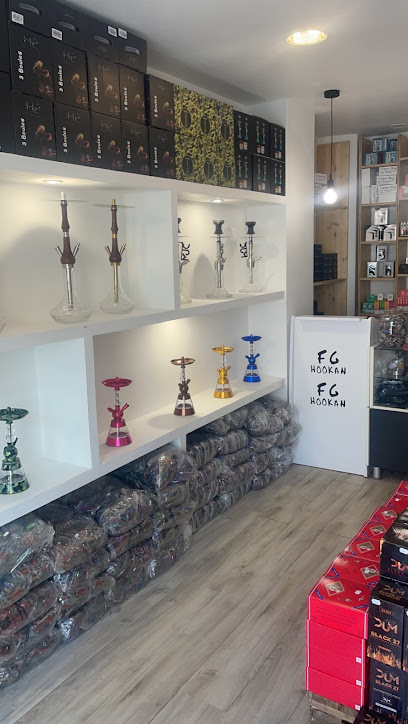
CB Shopping Fr
Experience the charm of Montpellier through unique gifts and souvenirs at CB Shopping Fr, your perfect stop for local treasures.
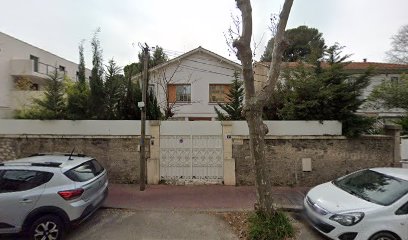
Cosmopoline Boutique
Explore unique fashion accessories at Cosmopoline Boutique, the perfect shopping destination in Montpellier for style-savvy tourists.
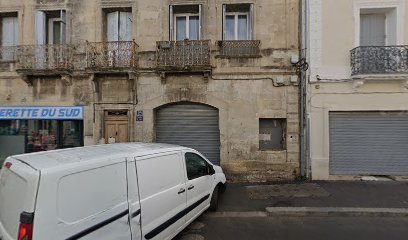
Essential bars & hidden hideouts
Le Rebuffy
Experience the vibrant nightlife at Le Rebuffy, a popular pub in Montpellier, offering a wide selection of drinks and a lively atmosphere.
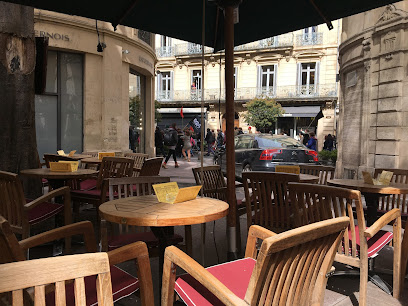
Délirium Café
Experience the vibrant blend of live music and exquisite French cuisine at Montpellier's Délirium Café, a cultural hub for food and music lovers.
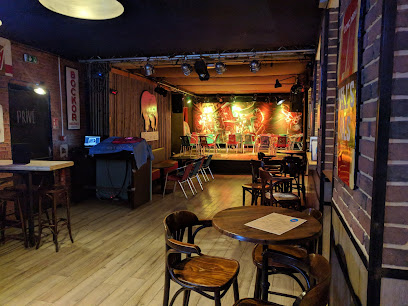
Les Trois Singes
Experience the vibrant nightlife of Montpellier at Les Trois Singes, where music, cocktails, and fun come together in a lively atmosphere.
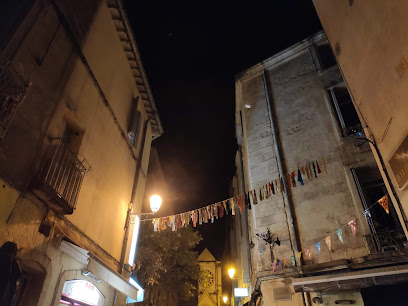
My Little Pub
Discover My Little Pub in Montpellier, a cozy bar offering an impressive selection of beers and delicious tapas in a welcoming atmosphere.
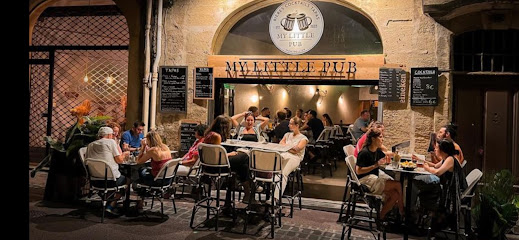
Bar des Lilas
Experience the vibrant atmosphere of Montpellier at Bar des Lilas, the perfect spot for drinks and relaxation in a charming setting.
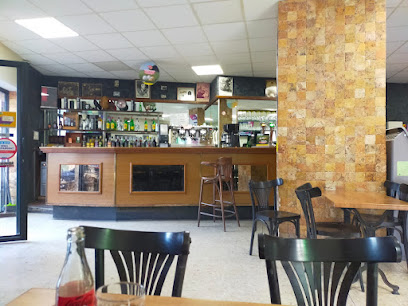
La BAF
Discover the vibrant culinary and cultural scene at La BAF, Montpellier's charming brasserie and cultural association.
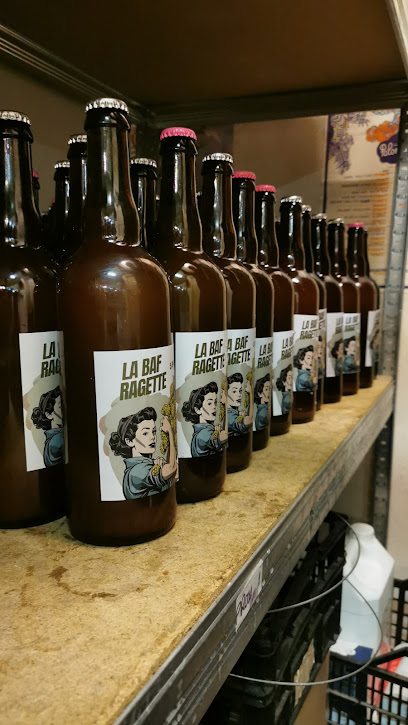
BAR TABAC
Discover the charm of Bar Tabac in Montpellier, where traditional ambiance meets welcoming service and delightful drinks await.
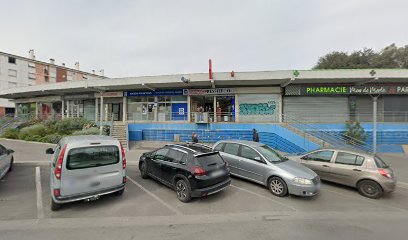
Bar le Babotin
Experience the heart of Montpellier at Bar le Babotin, where delicious cuisine and a vibrant atmosphere await every visitor.
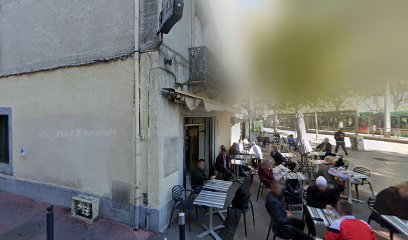
Bar Chicha Manel Tafilall
Discover the vibrant atmosphere and exquisite drinks at Bar Chicha Manel Tafilall, a must-visit bar in the heart of Montpellier.
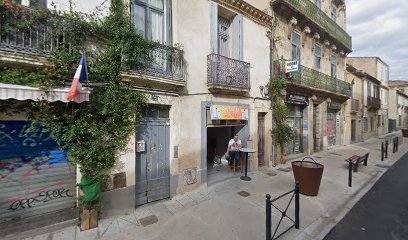
bar associatif artistique
Discover the artistic spirit of Montpellier at Bar Associatif Artistique, where creativity and community blend seamlessly for an unforgettable experience.
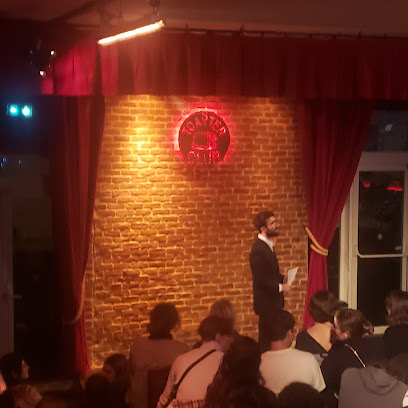
Local Phrases
-
- HelloBonjour
[bon-zhoor] - GoodbyeAu revoir
[oh re-vwar] - YesOui
[wee] - NoNon
[nohn] - Please/You're welcomeS'il vous plaît/De rien
[seel voo pleh / deu ryen] - Thank youMerci
[mehr-see] - Excuse me/SorryExcusez-moi/Désolé
[ex-koo-zay mwa / day-zo-lay] - How are you?Comment ça va?
[kom-mohn sah vah] - Fine. And you?Bien. Et vous?
[byen. ay voo] - Do you speak English?Parlez-vous anglais?
[par-lay voo ahn-glay] - I don't understandJe ne comprends pas
[zhuh nuh kohm-prahnd pah]
- HelloBonjour
-
- I'd like to see the menu, pleaseJe voudrais voir le menu, s'il vous plaît
[zhuh voo-dray vwahr luh meh-nu, seel voo pleh] - I don't eat meatJe ne mange pas de viande
[zhuh nuh mahnj pah duh vyand] - Cheers!Santé!
[san-tay] - I would like to pay, pleaseJe voudrais payer, s'il vous plaît
[zhuh voo-dray pay-ay, seel voo pleh]
- I'd like to see the menu, pleaseJe voudrais voir le menu, s'il vous plaît
-
- Help!Au secours!
[oh se-coor] - Go away!Allez-vous-en!
[al-ay voo-zahn] - Call the Police!Appelez la police!
[ah-peh-lay lah poh-lees] - Call a doctor!Appelez un médecin!
[ah-peh-lay uh mayd-sahn] - I'm lostJe suis perdu
[zhuh swee pair-doo] - I'm illJe suis malade
[zhuh swee mah-lahd]
- Help!Au secours!
-
- I'd like to buy...Je voudrais acheter...
[zhuh voo-dray ah-shet-ay] - I'm just lookingJe regarde juste
[zhuh ruh-gard zhoost] - How much is it?Combien ça coûte?
[kohm-byen sah koot] - That's too expensiveC'est trop cher
[say troh share] - Can you lower the price?Pouvez-vous baisser le prix?
[poo-vez voo bay-say luh pree]
- I'd like to buy...Je voudrais acheter...
-
- What time is it?Quelle heure est-il?
[kel er ay-teel] - It's one o'clockIl est une heure
[eel ay oon er] - Half past (10)Dix et demie
[dees ay duh-mee] - MorningMatin
[mah-tan] - AfternoonAprès-midi
[ah-preh mee-dee] - EveningSoir
[swahr] - YesterdayHier
[yehr] - TodayAujourd'hui
[oh-zhoor-dwee] - TomorrowDemain
[duh-mahn] - 1Un
[uhn] - 2Deux
[duh] - 3Trois
[twah] - 4Quatre
[kat] - 5Cinq
[sank] - 6Six
[sees] - 7Sept
[set] - 8Huit
[weet] - 9Neuf
[nuf] - 10Dix
[dees]
- What time is it?Quelle heure est-il?
-
- Where's a/the...?Où est...?
[oo eh...] - What's the address?Quelle est l'adresse?
[kel eh lad-res] - Can you show me (on the map)?Pouvez-vous me montrer (sur la carte)?
[poo-vez voo muh mon-tray (soor lah kart)] - When's the next (bus)?Quand est le prochain (bus)?
[kahn eh luh proh-shahn (bus)] - A ticket (to ....)Un billet (pour ...)
[uhn bee-yay (poor)]
- Where's a/the...?Où est...?
History of Figuerolles
-
The Figuerolles neighborhood in Montpellier has its roots in the agricultural landscape that characterized the region from the Middle Ages. Originally, this area was primarily composed of vineyards and farms, which served as the backbone of the local economy. The name 'Figuerolles' is derived from the French word for fig trees, reflecting the agricultural heritage of the neighborhood.
-
During the 19th century, as Montpellier began to industrialize, Figuerolles transformed into a working-class neighborhood. The expansion of the railways and factories in the region attracted a wave of laborers, leading to the construction of modest housing. This period saw the rise of a diverse community, with many families of different backgrounds settling in Figuerolles.
-
The 20th century brought further demographic changes to Figuerolles, as waves of immigration from North Africa and other regions contributed to the neighborhood's multicultural fabric. This blend of cultures is evident in the local cuisine, festivals, and daily life, making Figuerolles a vibrant representation of Montpellier's diverse society.
-
In the late 20th and early 21st centuries, Figuerolles underwent significant urban renewal efforts aimed at revitalizing the neighborhood. These initiatives included the restoration of historic buildings, the creation of public spaces, and enhancements to infrastructure. Despite these changes, Figuerolles has retained its unique character and sense of community, continuing to be a hub for local culture and social interaction.
-
Today, Figuerolles is recognized for its artistic and cultural contributions to Montpellier. The presence of local artists, artisans, and cultural events has fostered a creative atmosphere. The neighborhood's community-oriented projects and initiatives highlight its commitment to preserving its rich heritage while embracing modernity, making it a dynamic part of Montpellier's urban landscape.
Figuerolles Essentials
-
Figuerolles is easily accessible from other neighborhoods in Montpellier. The tram network is efficient, with Line 1 (the blue line) running from the city center to the Figuerolles area. You can board at major stops like Place de la Comédie. Additionally, several bus lines connect Figuerolles to other parts of the city. If arriving from Montpellier-Méditerranée Airport, take the shuttle bus to the city center and then transfer to the tram or bus.
-
Figuerolles is well-served by public transport, including trams and buses. The tram stops at several key locations within the neighborhood, making it easy to navigate. Bicycles can be rented through the local bike-sharing system, Vélomagg, which offers a convenient way to explore the area. Walking is also a great option, as Figuerolles features many pedestrian-friendly streets.
-
Figuerolles is generally a safe neighborhood, but like any urban area, standard precautions are advised. It is best to avoid poorly lit streets at night and be cautious of your belongings in crowded places. While there are no specific high-crime areas targeting tourists, areas closer to the outskirts may have higher incidents of petty crime. Remain vigilant and aware of your surroundings.
-
In an emergency, dial 112 for police, fire, or medical assistance in France. For non-urgent medical care, visit the local hospital or a nearby pharmacy for over-the-counter medications. It's advisable to have travel insurance that covers emergencies and to keep a list of local hospital addresses in case of need.
-
Fashion: Do wear comfortable clothes suitable for walking and the warm Mediterranean climate. Don't wear overly casual attire when dining out. Religion: Do be respectful when visiting religious sites; modest clothing is recommended. Public Transport: Do validate your ticket before boarding the tram or bus. Don't occupy priority seating if you're not in need. Greetings: Do greet locals with a friendly 'Bonjour' during the day. Don't skip pleasantries, as they are important in French culture. Eating & Drinking: Do try local wines and cuisine at neighborhood bistros. Don't eat while walking, as it is considered impolite.
-
To experience Figuerolles like a local, visit the neighborhood markets, especially the weekly farmer's market for fresh produce and local specialties. Engage with local shopkeepers and try to speak a few words in French, as it is appreciated. Explore the nearby parks and enjoy a picnic like the locals do. Don't miss out on local cafés where you can enjoy a leisurely coffee and people-watch.
Trending Landmarks in Figuerolles
-
Place de la Comédie
-
Jardin des plantes de Montpellier
-
Arc de Triomphe
-
Promenade du Peyrou
-
Montpellier Cathedral
-
Aqueduc Saint-Clément
-
Pavillon Populaire
-
Château De Flaugergues
-
La Tour de la Babote
-
Place de La Canourgue
-
Parc de la Guirlande
-
Fountain of the Three Graces
-
Pine tower square
-
Square Maquis Bir Hakeim
-
L'Escalier Arc en Ciel Belvédère
Nearby Cities to Figuerolles
-
Things To Do in Nîmes
-
Things To Do in Avignon
-
Things To Do in Marseille
-
Things To Do in Aix-en-Provence
-
Things To Do in Toulouse
-
Things To Do in Girona
-
Things To Do in Pas de la Casa
-
Things To Do in Soldeu
-
Things To Do in Canillo
-
Things To Do in El Serrat
-
Things To Do in Ordino
-
Things To Do in Encamp
-
Things To Do in La Massana
-
Things To Do in Escaldes-Engordany
-
Things To Do in Arinsal




